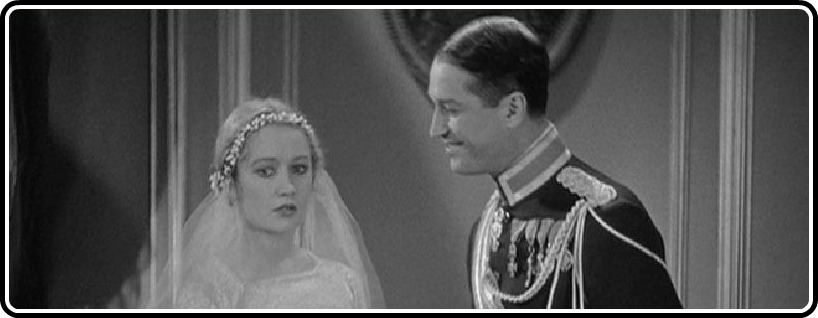
Since acquiring Criterion’s new Design for Living blu-ray last week, I’ve been going through an ardent little crush on Miriam Hopkins. Though I had planned for awhile on reviewing The Smiling Lieutenant in this column to coincide with the Design for Living release, I hadn’t made the connection between Ms. Hopkins’ appearance in both films. In my mind, they were both simply Ernst Lubitsch productions and that was sufficient reason to revisit Eclipse Series 8: Lubitsch Musicals one last time in my on-going Journey through the Eclipse Series. I’ve already covered The Love Parade, Monte Carlo and One Hour With You, leaving just this last movie to write up, in my mind the flimsiest of the four going into this latest viewing.
But after I was electrified by the sheer radiant shimmeriness of Miriam Hopkins in Design for Living (review coming soon), I just had to go back and pay a little closer attention to her performances within the Criterion canon, both here and in the Lubitsch masterpiece Trouble in Paradise, which I covered in my Criterion Reflections blog way back in 2009, in the early phase of that project. Wow, what an impact some added focus, a little background research and repeat viewings can have in winning my admiration for a first-rate Jazz Age comedic actress who probably deserves a stronger “legend of the Silver Screen” reputation than time and pop culture have allotted her.
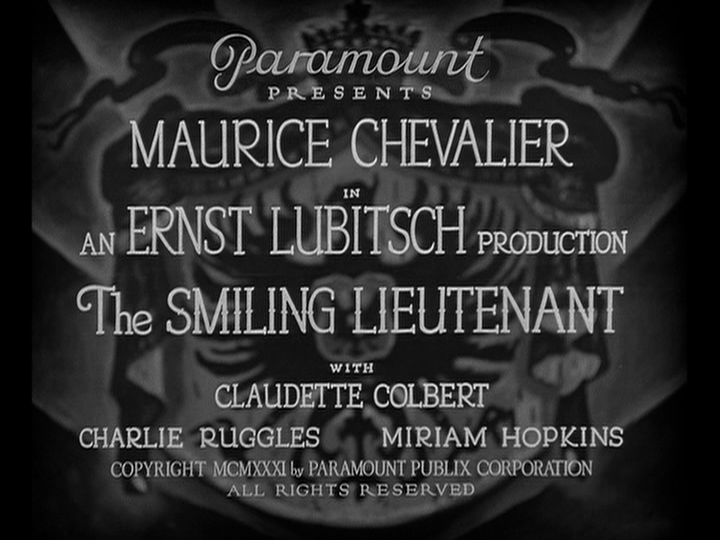
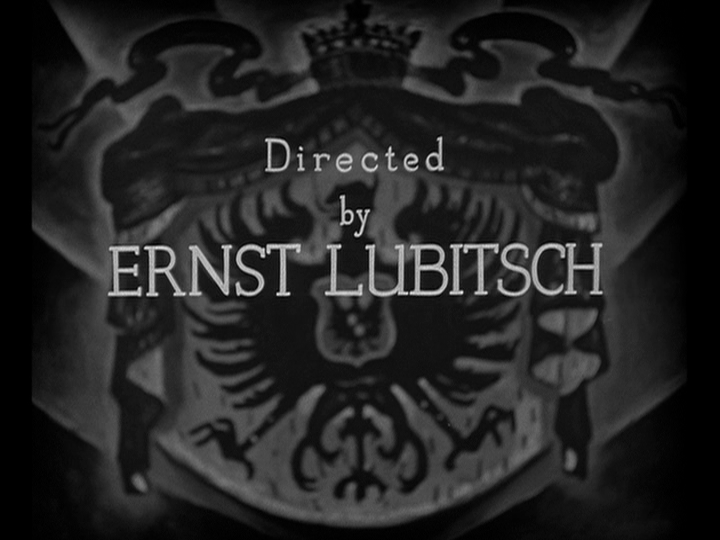
As far as The Smiling Lieutenant itself is concerned, it’s probably important to point out right here that it was never designed to be a showcase for the diminutive blonde starlet from Georgia. As you can see, she only had fourth billing on the marquee, and was merely regarded as a suitably photogenic newcomer when she was cast to play the part of a naive and sheltered princess from the mythical nation of Flausenthurm (I had to make sure I spelled that right, as those who’ve seen this film will readily understand.) I figure Jeanette MacDonald had priced herself out of this role by 1931. Though I’m sure she would have been great in it, we can be grateful that Miriam Hopkins got this opportunity to showcase her comedic chops as it opened the door to a pair of truly brilliant performances under Lubitsch’s guiding hand soon thereafter.
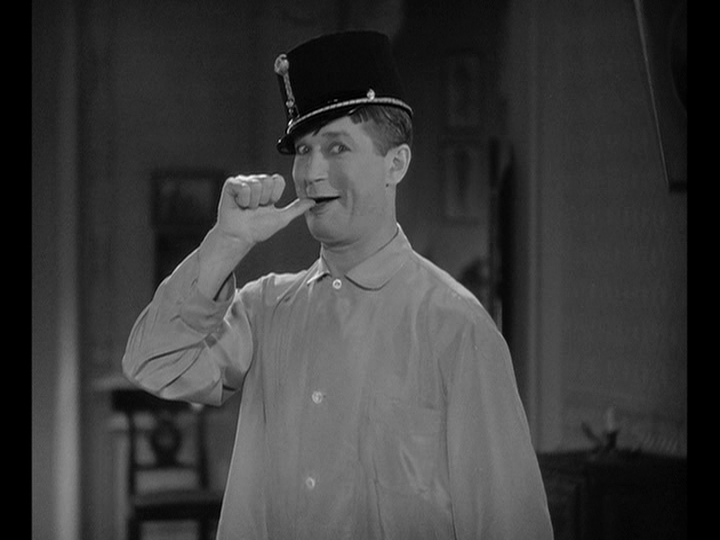
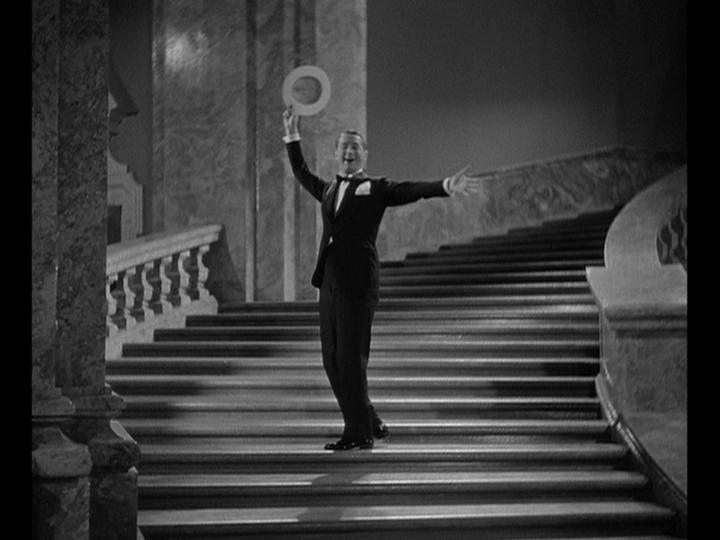
Besides Lubitsch himself, who was already garnering a huge reputation as one of Hollywood’s top directors that would only become huger over the next few years, The Smiling Lieutenant‘s big draw was the one and only Maurice Chevalier, who occupied the title role of Lt. Niki von Preyn with his distinctive brand of savoir faire. Admittedly, his relentless mugging, eye rolls and outrageous French accents are potentially unbearable, or at best a laboriously acquired taste for some, but it’s hard for me not to laugh at the simple cartoony silliness of his shtick. Having said that, his turns in The Smiling Lieutenant occasionally give off more than a whiff of by the numbers gear-grinding, as he plays essentially the same character in each of the three Lubitsch musicals gathered in this box: a supposedly insatiable ladies’ man who’s got a witty innuendo and irresistible erotic charm in surplus for any and all opportunities to spend a little while in sweet embrace. Though Chevalier may not pass muster by today’s standards of masculine eye-candy, the guy’s a born showman who for better or worse epitomizes a certain romantic archetype. So just go with it and let him entertain you!
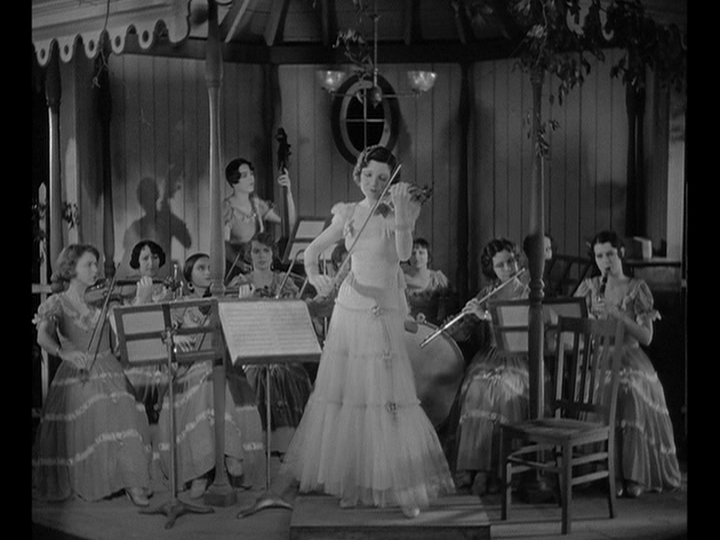
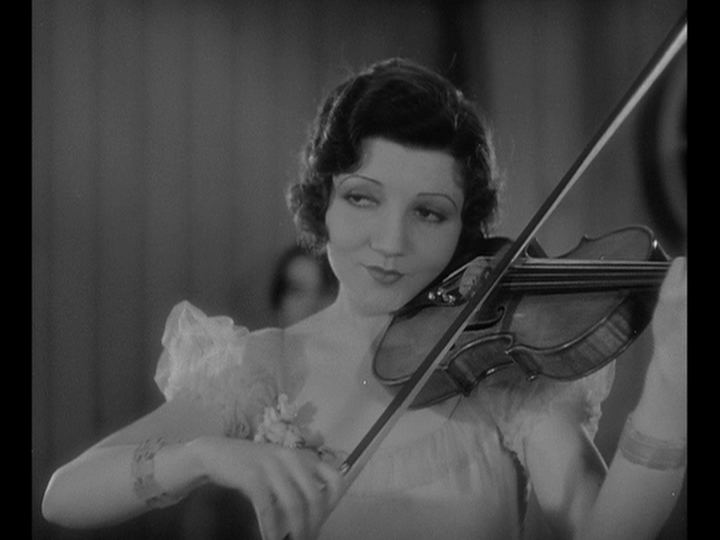
Even among the female leads, Hopkins is relegated to second fiddle (pun intended, not literally though, since her character plays the piano.) In 1931, Claudette Colbert was the bigger star, and she’s given both more screen time and a more sympathetic role as Franzi, the working class girl who makes her living as band leader of an all-female orchestra called The Viennese Swallows (rim shot!) and spends most of her appearance in The Smiling Lieutenant as Niki’s true (but temporary) love interest. Though she’s ultimately forced to part ways with Niki by the film’s end, as he’s otherwise detained, Colbert and Chevalier do share the most adorable romantic moments together. This clip below is one of them, a morning-time -ditty sung at Niki’s place after he’s invited her to stay for breakfast following a post-concert rendezvous the night before:
But even as the chemistry ignites between Chevalier and Colbert, a wrench is getting ready to be thrown into the mechanics of their otherwise uncomplicated attraction to each other, as King Adolf XV of Flausenthurm and his pampered daughter Princess Anna are en route for a royal visit to the Austrian capital Vienna where Lieutenant Niki plays his military dress-up games amid all the pomp and pageantry that great old city is known for.
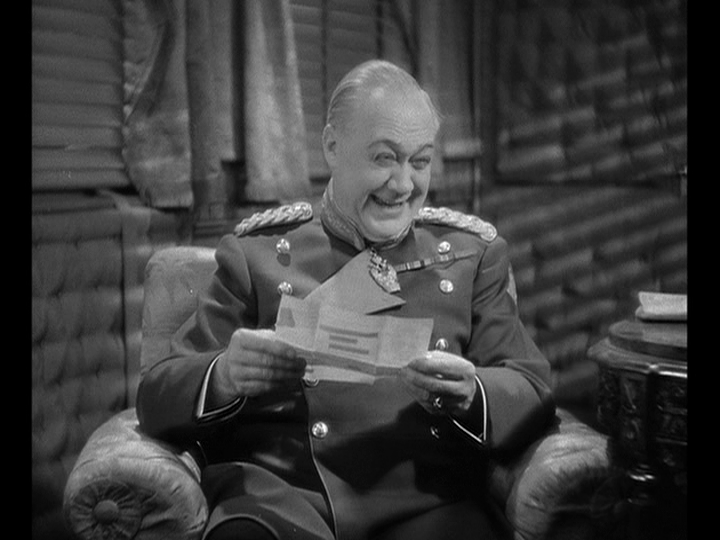
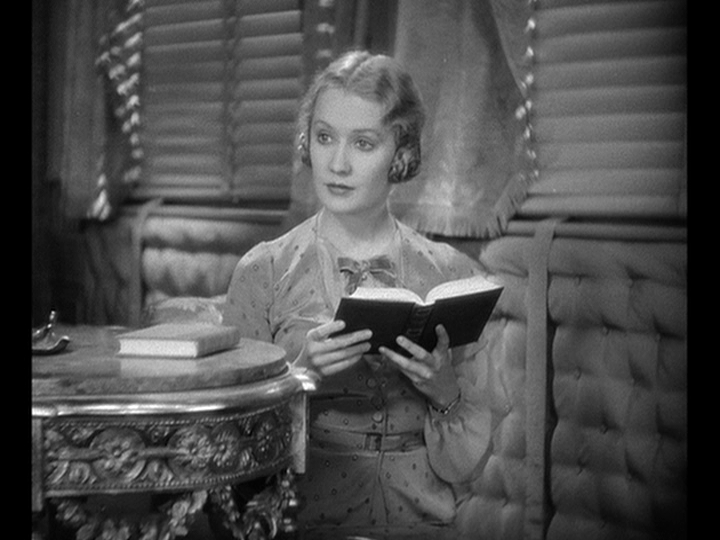
Lubitsch’s satirical take on the fastidious absurdity of aristocratic traditions is a thread that runs consistently through the films in this box set, as they’re all set in some of Europe’s most heralded locales, as well as a few fictitious places that work to effectively generalize the ridicule to all the plumed hats, stuffed shirts and brocaded epaulets to be found on the Continent. His jabs simultaneously poke fun at Lubitsch’s European roots, play into populist suspicions and fascinations about royalty and utilize the time-tested platform of idealized high & mighty types upon which to deliver his acerbic but insightful commentary on the endless tussles and hilarious conflicts that fuel romantic relationships. In the case of Princess Anna, she’s the prototype of the well-bred “good girl” who’s taught to do everything by the book, even though “the book” has all the most interesting parts edited out.
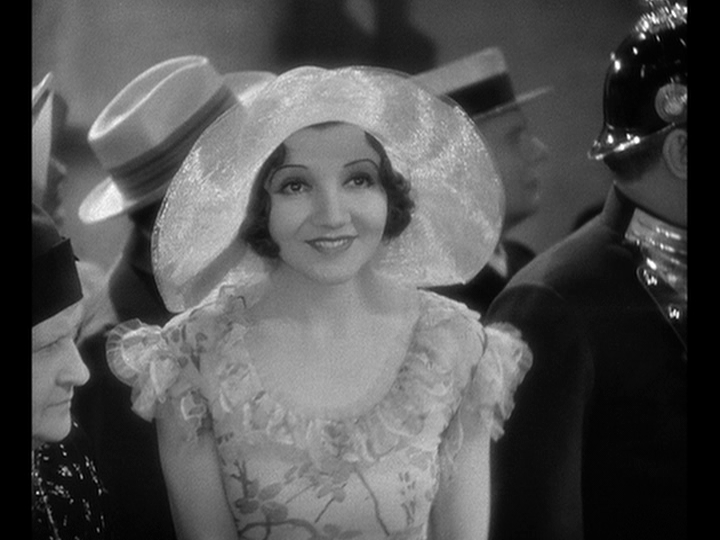
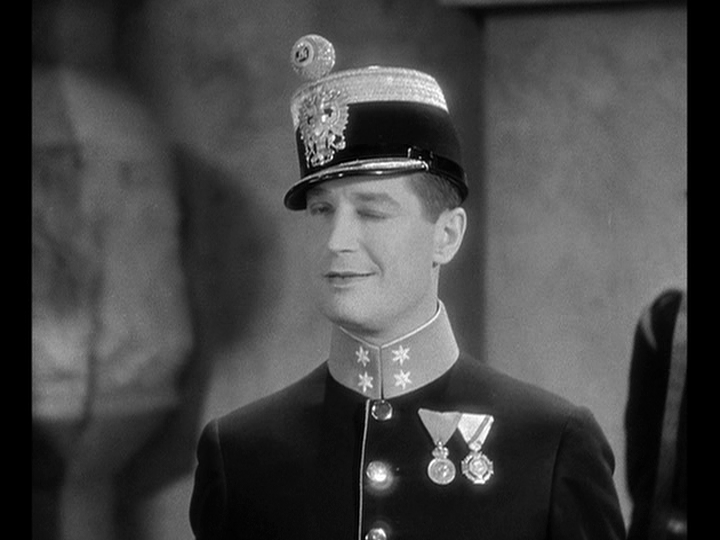
As with just about any rom-com one could cite, The Smiling Lieutenant’s plot hinges on a crucial twist of fate, in this case an ill-timed wink exchanged between Lieutenant Niki and his new lover and soon-to-be paramour Franzi. Though innocent in and of itself, the wink’s execution occurs precisely at the moment when the visiting dignitaries (King Adolf and Princess Anna) happen to cross the path of their gaze, leading Anna to conclude that the flirtatious officer was getting fresh with Her Royal Highness.
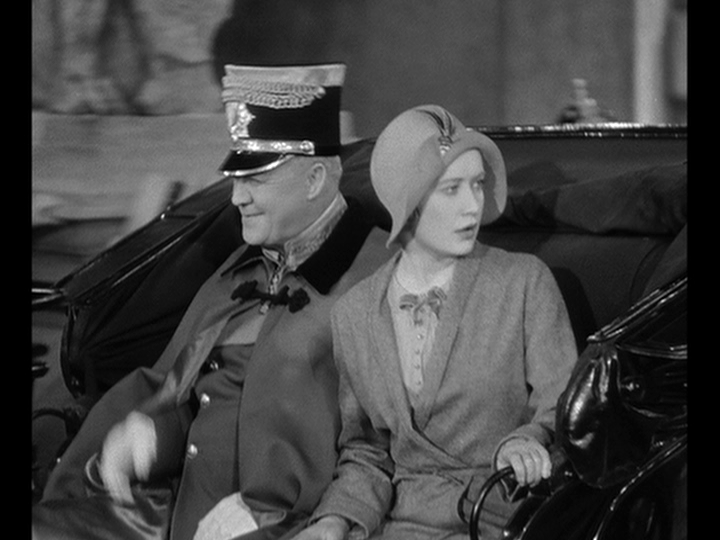
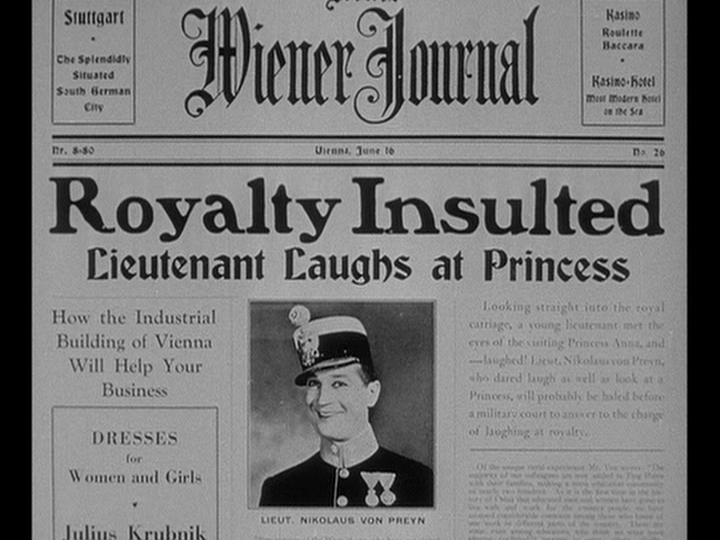
That puts the military man in hot water for violating protocol and straining diplomatic relations between Austria and Flausenthurm, resulting in a penalty imposed on Lieutenant Niki much worse than a lengthy stint in the brig: an arranged marriage to the princess and, not coincidentally, exile from his beloved Vienna. The deal is settled in a classic Lubitschean quip, when Niki is grilled by Adolf, the agitated father, who asks him, “When you winked at my daughter, were your intentions honorable?” Niki of course answers, “They were.” Adolf: “Well then, naturally you’ll marry her.” Realizing that he’s close to being trapped by his words, Niki adjusts his response: “They were dishonorable!” Adolf: “Then you’ll have to marry her!”
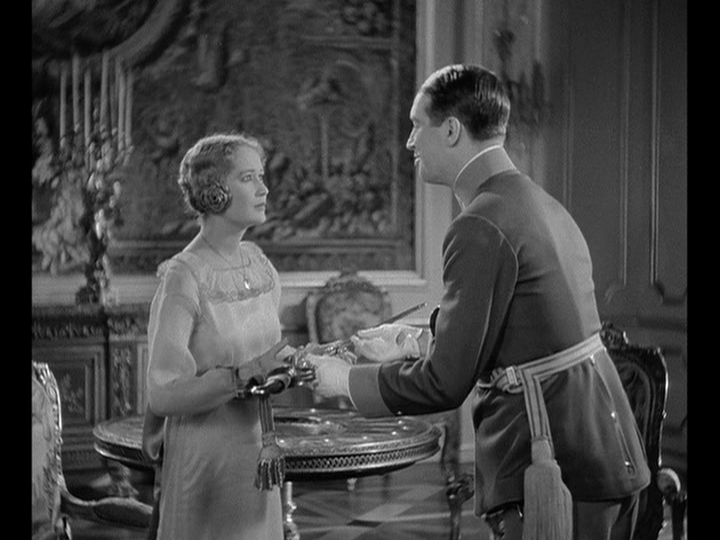
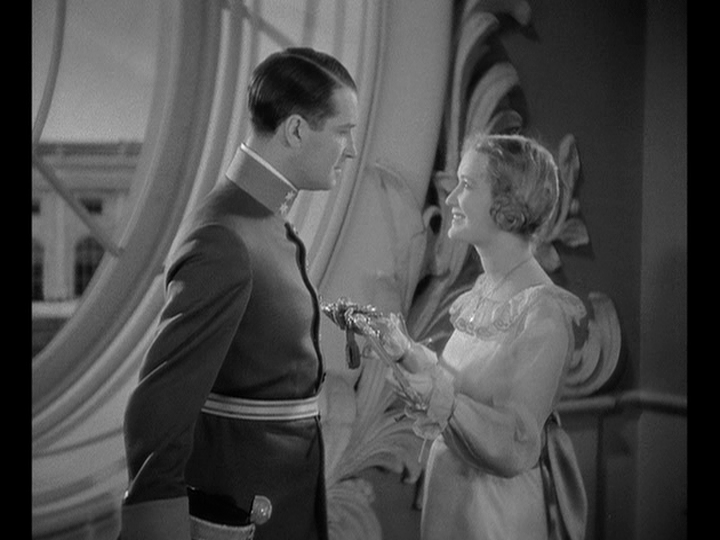
Always the master of visual puns and more than slightly suggestive symbolism, Lubitsch has his protagonists exchange a little swordplay as Niki presents his side arm to the princess out of sheer politeness and a desire to get his interrogation over with by way of a friendly gift. But after she takes possession of it, she reads more into the exchange than the gentleman intended, taking it upon herself to bestow a mark of ownership upon the weapon and returning it to him to let him know that another interest has laid claim to his intimate property.
Besides this small scene, a word of advice for Lubitsch newbies: always look for the beds! They function almost like sacred shrines in his films, with every pillow, ornate filigree around the frame and the positioning of bodies anywhere in their vicinity carrying loads of significance that just become funnier with each viewing. The preparation of the “royal bedchamber” in The Smiling Lieutenant is one such scene, that kind of sneaks up on the viewer who doesn’t quite get what all the fuss is about. Simply watch it, think about it a little; the laughs will come full and easy.
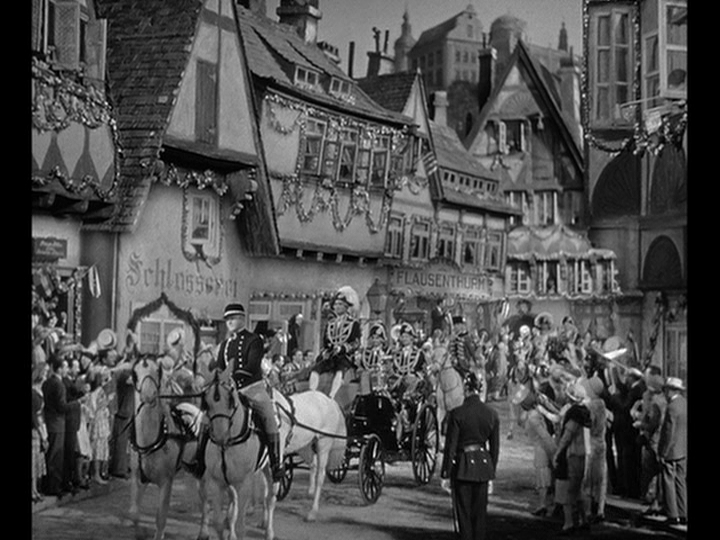
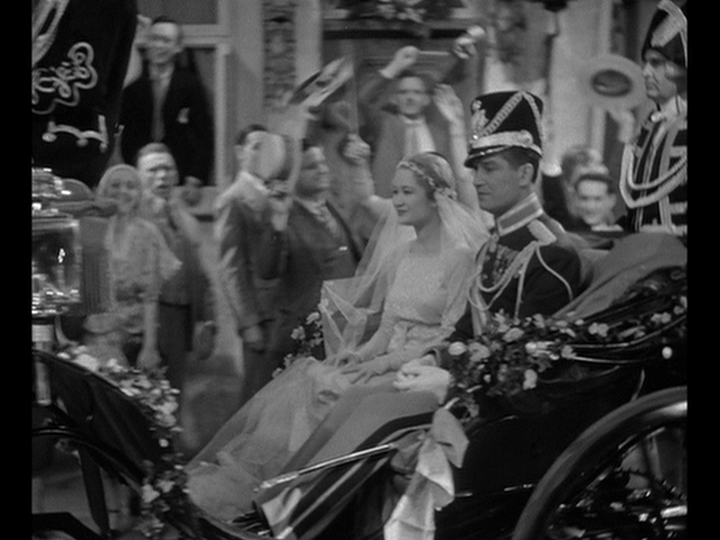
A brief indulgence of elaborate scenery and ceremony surrounds the wedding, another less celebrated aspect of the Lubitsch Touch, as his lavish Art Deco infused sets always add to the atmosphere of delirious escapism these old films evoke.
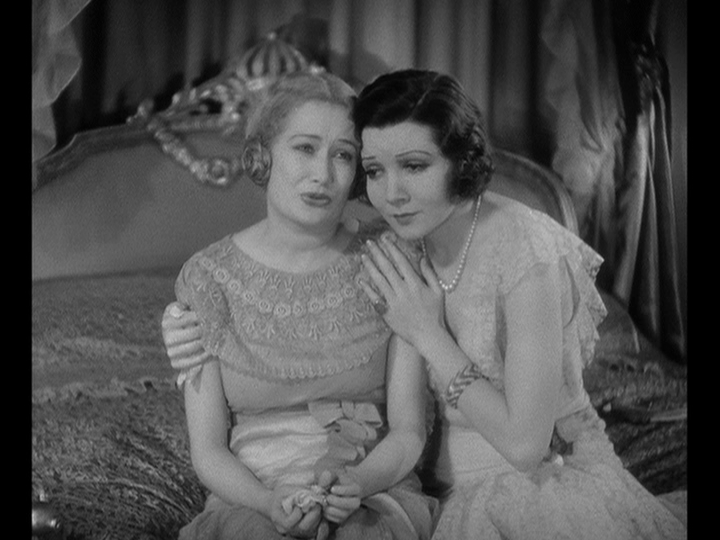
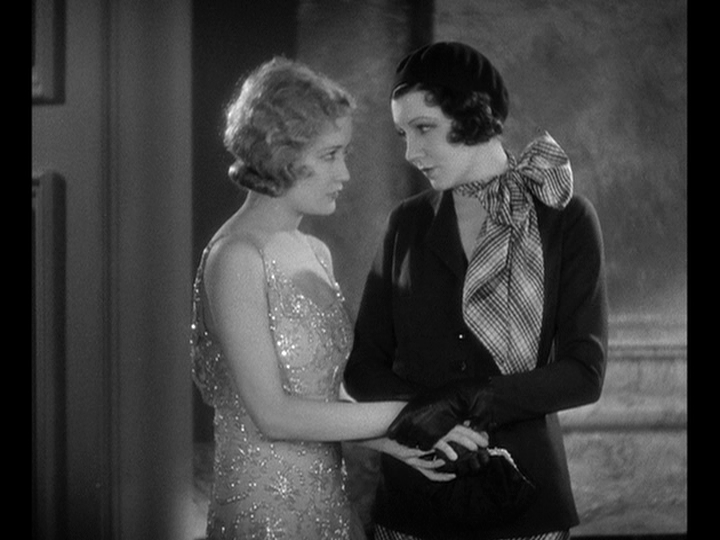
The Smiling Lieutenant‘s second half is mainly preoccupied with its love triangle and the amusing shenanigans that take place as Niki grudgingly adjusts to his new status as a married man while scheming up ways to “step out” and get back into the arms of his sweetheart Franzi. Though they share a few moments of bliss, and Niki is predictably content to maintain the charade for as long as he can get away with it, Franzi knows that too much has changed in their relationship for things to continue on that same high note they shared when they made such beautiful music together. It’s only a matter of time before Anna and Franzi have the big face-off that will determine who will win out in the end. And of course, it’s bound to be the wife. Though at least one reviewer found the ending too moralizing for his taste, I don’t see Lubitsch as merely caving in to the notion that marriage has to be validated and sanctified at all costs. Franzi’s glum but realistic acknowledgement that “girls who start with breakfast don’t usually stay for supper” is more of an observation of practical wisdom, how things generally tend to work in this world, in which people who might be otherwise ideally suited for each other find their prospects for lasting happiness together thwarted by circumstances, obligations, traditions and social barriers that stand between them. Alas…
But Franzi shows her genuineness of heart and wins our affirming nod as she uses the hard knocks lessons she’s learned on the stage of life to bring the cloistered Anna up to speed. In the process, she offers the young bride a few helpful tips on keeping things fresh and lively with her new husband:
Claudette and Miriam’s spunky duet on “Jazz Up Your Lingerie” is probably the overall highlight and most memorable bit you’ll take away from The Smiling Lieutenant, but Lubitsch gets maximum mileage out of Ms. Hopkins’ freshness to audiences of the early 1930s as this prim, demure, well-bred young lady undergoes a shockingly entertaining transformation in the film’s final few minutes.
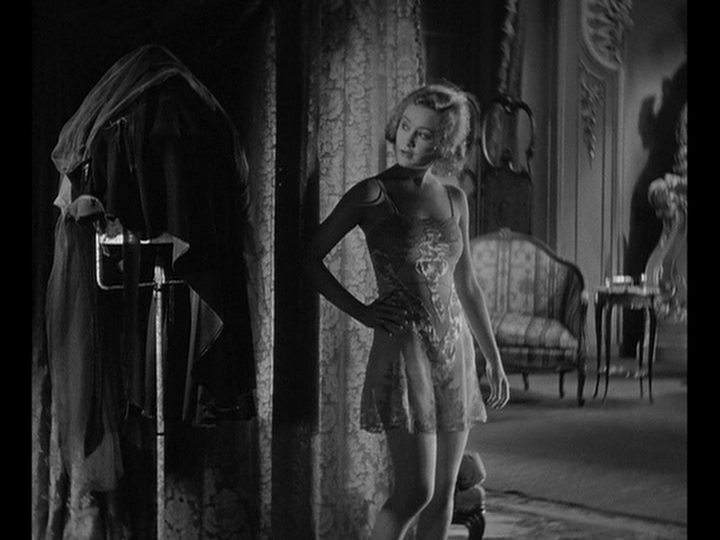
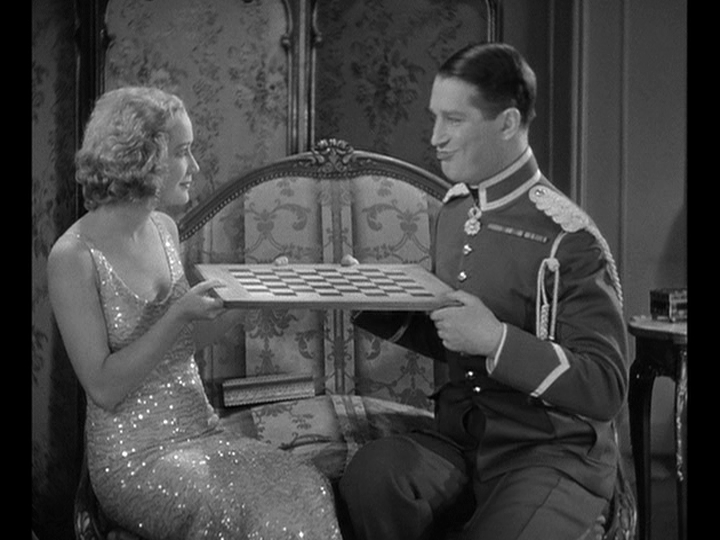
Though we only see Miriam Hopkins slink across the screen in her sequined gown for a few minutes at the end of The Smiling Lieutenant, it’s a tantalizing foretaste of sights yet to come as she took on more prominent and wittily subversive roles in Trouble in Paradise and Design for Living. Like Princess Anna herself, Hopkins was born into a distinguished family, raised to enjoy the finer things in life and to maintain a poised countenance. That she allowed herself to step out from that life of privilege and become a first rate artist who starred in prescient, provocative films loaded with remarkable staying power many decades later, is a gift we can all take delight in this holiday season.





Of all the Lubitsch musicals I’ve seen thus far, THE SMILING LIEUTENANT is definitely my favorite, and one of my favorites of his overall. This is actually the first I’ve heard that there’s even a chance one wouldn’t be won over by Maurice Chevalier, but I guess to each they’re own. I like a little showmanship in the right setting.
And Miriam Hopkins…yeah, what else needs be said? I was astonished when I first saw her in TROUBLE IN PARADISE and look forward all the more to each new film of hers I see.
Great piece as always, David.
Thanks for the note, Scott. At this point, I have to say it’s very hard for me to single out any one of these Lubitsch Musicals as my favorite, though maybe Monte Carlo has the fewest highlights to stick in my memory. They’re all pretty delightful! Chevalier always makes me laugh, his leering is just so silly, how can I not be amused by that. But my read is that he lays it on just a bit thicker than usual here, especially the way his voice cracks on some of those “ra-ta-ta-ta-ta-taaaas” in the opening number. I just want to give novices a fair warning! Still, what a performer.Â
I’d sure like to find a good DVD of Miriam Hopkins in The Story of Temple Drake, but that seems elusive. I wonder if it’s Criterion- or Eclipse-worthy? The YouTube clips I’ve seen lead me to think it could be. I’d like to get a copy of her performance in Dr. Jekyll and Mr. Hyde too.Â